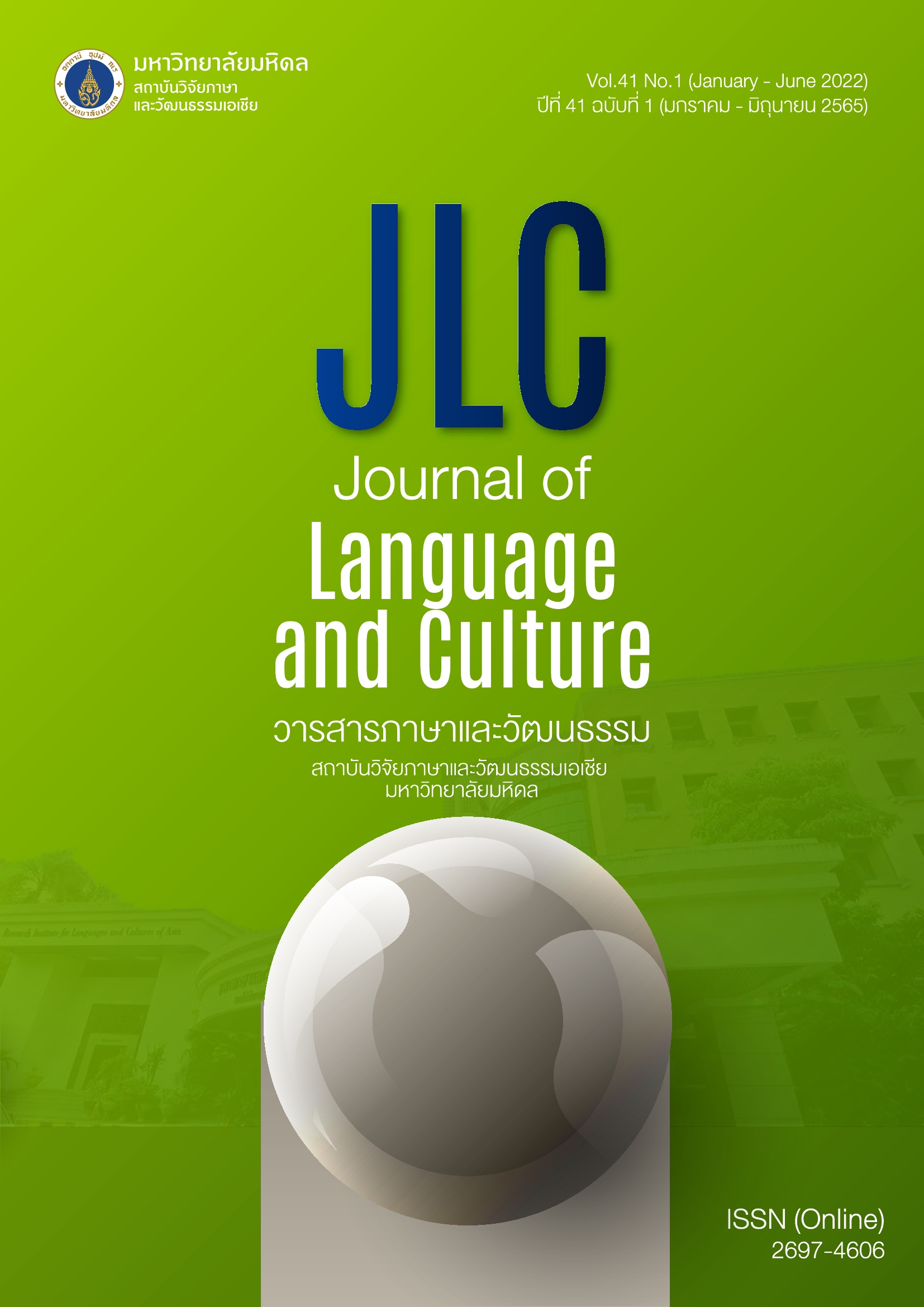Existential online language education: Addressing ubiquitous language learning in light of COVID-19
Main Article Content
Abstract
In the following inquiry, Inclusive Practitioner Research (IPR) was used to address ubiquitous language learning at a local Thai international college in light of COVID-19 restrictions. Using Exploratory Practice (EP) (Hanks, 2017) and Manen’s Action Sensitive Pedagogy (ASP) (Manen, 2015), local students’ online language learning experiences were explored through an existential lens. The purpose of the inquiry was to better understand local students’ Ubiquitous Learning (UL) experiences through existential writing assignments as they used English as a Medium of Instruction (EMI). In addition, emerging technologies and emerging pedagogies were used to help students make sense of their learning experiences. Experiential data was collected during COVID-19 restrictions through observation, anecdotal narratives, interviews, and writing protocols. Using ASP (Manen, 2015) the data was analyzed in two phases, demonstrating that “local” students using EMI online can benefit from Ubiquitous Learning when assignments are personalized using existential themes. Using existential themes allows students opportunities to explore academic content in relation to their lives, by giving aspiring international students the time and space to explore academic content existentially. As a result, Thai international students were introduced to self-perpetuating forms of motivation through self-determined learning (SDL).
Article Details
The articles featured in the Journal of Language and Culture (JLC) constitute academic works representing the viewpoints of the respective author(s). It is crucial to note that these opinions do not necessarily reflect those of the Editorial Board.
All articles published in JLC are released under the Creative Commons Attribution 4.0 International License (CC BY 4.0). This license grants permission for unrestricted use, distribution, and reproduction in any medium, provided proper credit is given to the original author(s) and the source.


